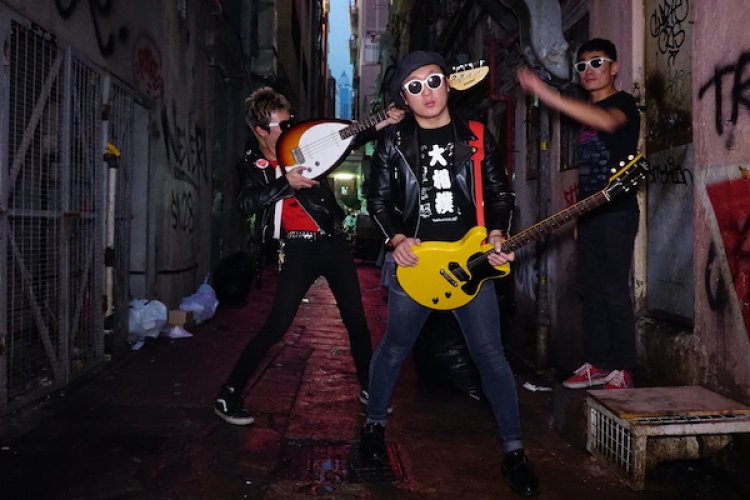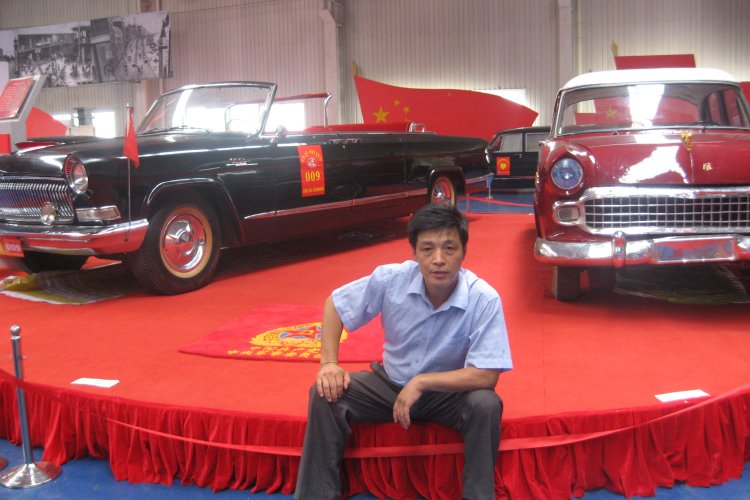dGenerate: Taking Chinese Indie Films to the US
China offers few opportunities for cinephiles wanting to watch something on the big screen other than Hollywood blockbusters and the historical epics churned out by local studios. But if independent Chinese films are hard to see in Beijing, they’re even more difficult to track down in the US. American filmmaker Kevin Lee, along with producer Karin Chien, are working hard to remedy this with the New York-based dGenerate Films (dgeneratefilms.com), a new company specializing in bringing the best in independent Chinese cinema to US audiences through public screenings, online rentals and DVD sales to schools and universities.
Kevin was recently in Beijing meeting with local filmmakers and shooting his own documentary. Agenda caught up with him to talk about Chinese filmmaking, Dgenerate Films and the future of China’s film industry.
Can you tell me a bit about your background and how you became interested in Chinese cinema?
I’ve loved movies all my life, though I was discouraged from pursuing filmmaking since my parents didn’t consider it a practical career. But I couldn’t find a satisfying career path, so at the end of college I enlisted in a two-year teaching stint in rural China – it was the most exciting thing I could think of. It was there that my true cinephile nature came out – I used movies all the time as a teaching tool, making lesson plans out of film dialogue and holding discussions based on movie scenes. Eventually one student made the modest observation that I should do something related to movies instead of teaching! So it was in China that I discovered my calling.
When I returned to the States and felt the absence of my China life, so I watched just about every Chinese film I could get my hands on. It was Jia Zhangke’s Platform that truly opened my eyes – this was the first film that really showed the China I had experienced firsthand, and that connection between my experiences and the movie screen was revelatory. It forever changed my concept of what movies could or should be, and it’s definitely informed my work with dGenerate.
How did you become involved with dGenerate Films?
dGenerate is the brainchild of Karin Chien. She and I started discovering Chinese independent films screening in New York around the same time, and we wondered about how to build a distribution system to give stronger exposure to these films in the US.
Karin first went to China in 2008, met dozens of people and came back with about 50 DVDs. I did the honors of watching every single one of them, and that’s been one of my primary functions since. I’ve watched over 300 independent films in the past three years in order to choose the best for our catalog.
Additionally I run our blog (dgeneratefilms.com), which has become a leading resource for up-to-date news and in-depth articles and interviews about the Chinese independent film scene.
What kinds of films does dGenerate distribute?
We specialize in distributing films from Chinese independent filmmakers who work outside the official system. Because these films don’t go through the censors, they are among the most cutting edge works from China, both in terms of content and artistry. These include such acclaimed narrative filmmakers as Ying Liang (The Other Half) and Liu Jiayin (Oxhide), important documentary filmmakers like Ou Ning (San Yuan Li) and Zhao Liang (Crime and Punishment), and those who work in multiple genres, like Cui Zi’en (Enter the Clowns) and Zhao Dayong (Ghost Town).
Almost all of these films are made with digital cameras and technology, which has revolutionized filmmaking in China by giving more artists the chance to make films in a greater variety of situations.
We named our company dGenerate to acknowledge this digital generation of artists.
Who do you regard as the most important filmmakers working in China today?
I used to think that the only filmmakers worth paying attention to were those working outside the state system, but gradually I’ve come to appreciate the importance of what filmmakers are doing within the system.
Jia Zhangke (Still Life, 24 City, I Wish I Knew) is no longer an underground filmmaker, but his recent state-approved productions are important because you can really see him trying to bring a more thoughtful, critical perspective about Chinese history and society to commercial filmmaking.
You can even see this in mainstream, big budget films like Aftershock and City Of Life and Death, which are making significant advances in bringing mainstream Chinese cinema to global audiences. They’re doing this with psychically charged scenarios that allow for more thematic complexity and darker subtexts than typical propaganda productions. They’ve learned a lot from Hollywood, and now they’re poised to take it on.
Is it getting any easier for independent filmmakers to work in China?
I’d say that the climate has opened up considerably in China compared to ten years ago. When a director like Lou Ye can still shoot a feature film like Spring Fever in broad daylight, it’s clear that there is a lot more freedom than there was in the past.
Of course, there are still hurdles.If people think that you are making a film about a sensitive issue you’re bound to get a call from the local authorities. Those are the inconveniences that filmmakers have to contend with if they want to make an independent film. But many directors have proven to be both resolute and resourceful in dealing with the situation.
One thing worth keeping an eye on is to what extent the system will absorb or co-opt the independent scene. Jia Zhangke and Wang Xiaoshuai’s (Beijing Bicycle) crossover to state-approved productions is already an example of how this happened to the Sixth Generation, and the digital generation can’t be far behind.
Something that struck me this year was that the Shanghai TV Festival, which precedes the Shanghai Film Festival, awarded large production funds to underground documentary filmmakers like Cong Feng and Xu Tong. So the most exciting development may be how the underground documentary scene finally breaks into the mainstream, giving audiences a more down-to-earth look at their own society.
You’re currently in China working on your own documentary. Can you tell me a bit about the project and what the film is about?
The documentary is about several of my former students in China, investigating where they are now and what has happened to them in the 12 years since I was their teacher. It’s taken me all over China: Jiangxi province (where I was their teacher), Beijing, Guangzhou, Zhejiang.
It will be my first feature production, which is fitting – after all, they were the ones who inspired me to make a career in film!
Recommended Screening Venues
Broadway Cinematheque MOMA (BC MOMA) The crème-de-le-crème of Beijing’s indie film scene combines multiplex-style comfort with an eclectic screening program of local and foreign films. Open daily, times vary. Dongzhimen 东直门, North area of Dongzhimen MOMA, 1 Xiangheyuan Lu, Dongzhimen, Chaoyang District (8438 8258) 朝阳区东直门香河园路1号, 万国城北区(二环路东北角)
CNEX Salon Café Hosts regular screenings of hard-to-see independent Chinese documentaries and features. Directors are usually on hand to talk about their films. 3 Guangqu Donglu, inside Image Base Beijing (take Dongsihuan to Da Jiaoting Qiao, turn East onto Guangqu Lu. Go straight past three stops, make a U-turn, go straight about 200 meters; Jingyuan Image Base is on the north side of the road), Chaoyang District (8721 5576) 朝阳区广渠东路3号竞院图片基地1号库东1层
Trainspotting This trendy café has a decent screening room where independent Chinese documentaries are regularly shown free of charge. Filmmakers are always on hand to discuss their work, and films are usually subtitled in English. Daily 11am-11pm. 46 Fangjia Hutong (just south of Guozijian Jie), Dongcheng District (6400 1725) 东城区方家胡同46号艺术园区 (国子监南临)
Ullens Center for Contemporary Art (UCCA) UCCA screens often controversial local features and documentaries that are hard to see elsewhere else in China’s capital. The center’s multi-lingual website is kept up-to-date with screening details. Highly recommended. Tue-Sun 10am-7pm. Dashanzi Art District, 4 Jiuxianqiao Lu, Chaoyang District (8459 9269) 朝阳区酒仙桥路4号大山子艺术区






